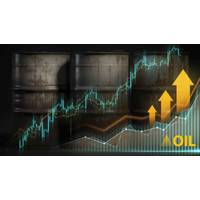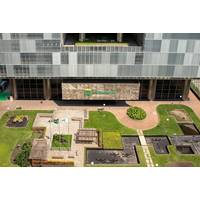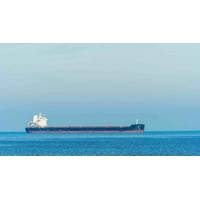Seattle Calls for Safeguards Amid Boom in Oil Train Shipments
Seattle officials called on Wednesday for more safeguards for crude oil trains traveling through the city in increasing numbers, warning some rail infrastructure was antiquated and could contribute to a catastrophic accident.
An oil tanker accident in the city could be "a catastrophe for our community in terms of risk to life, property and environment," Seattle's Office of Emergency Management said in a report.
Citing a series of devastating accidents linked to oil train derailments, including one in Canada that killed 47 people in a city in Quebec last year, the report said new safety measures should be enacted as more crude oil shipments move through the largest city in the Pacific Northwest.
"An incident requiring warning, evacuation or rescue could easily affect tens of thousands of people in densely populated sections of Seattle," it concluded.
Oil-by-train shipments in the United States have been growing rapidly over the past three years to get oil to markets as pipeline infrastructure has lagged. Last year, U.S. railroads moved 11 times more crude oil than all oil moved by trains from 2005 to 2009, according to federal transportation data.
Each week about 15 trains carrying a million gallons of crude oil travel through Washington state, much of the oil coming from Bakken reserves in North Dakota, according to federal transportation data.
"This crude oil is highly flammable and easily ignited at normal temperatures by heat, static discharges, sparks, or flames," the report said.
An area of primary concern was the Great Northern Tunnel, a mile-long rail tunnel beneath downtown Seattle. Owned by Burlington Northern Santa Fe Railway, the 110-year-old tunnel was grandfathered ahead of current safety codes.
In a letter to the railway this week, Seattle Mayor Ed Murray called the freight and passenger tunnel "antiquated."
"In the event of a fire in the tunnel, first responders may not even be able to enter the tunnel to address the emergency," the letter said. "The rapid increase in volume in crude oil shipments only makes it more likely that such an accident will occur."
Murray and city officials have asked the railway to make a number of improvements, including installing a fire and vapor suppression system and radio communications. The railway said it was addressing the city's concerns and had made a series of improvements on tracks in the tunnel.
(Reporting by Victoria Cavaliere; Editing by Cynthia Johnston and Mohammad Zargham)






